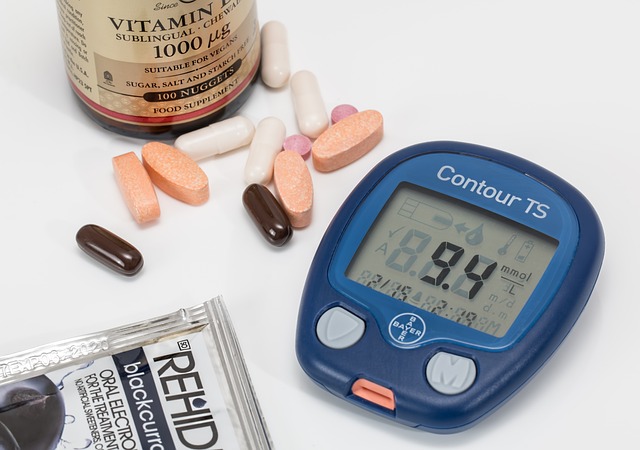In the UK, a simple Cholesterol Blood Test assesses cardiovascular health by measuring LDL ('bad') and HDL ('good') cholesterol levels through non-invasive arm-drawing procedures. Regular testing is crucial for heart health as high cholesterol often has no symptoms but significantly raises the risk of heart disease and strokes. Optimal total cholesterol levels are below 5 mmol/L, with LDL under 3 mmol/L and HDL above 1 mmol/L (1.2 for women) recommended to prevent risks associated with 'bad' cholesterol. Triglycerides should remain below 1.7 mmol/L to avoid heart disease linked to diet or insulin resistance.
“Discover how simple blood tests can reveal your cholesterol levels and significantly impact your health. In the UK, understanding cholesterol is key to maintaining a healthy lifestyle. This article guides you through the process of the UK cholesterol blood test, its types, and interpretation of results. Learn about the importance of managing cholesterol and take control of your well-being. Explore these insights to ensure you’re making informed decisions regarding your heart health.”
- Understanding Cholesterol: What is it and Why is it Important?
- UK Cholesterol Blood Test: How is it Conducted and What are the Types?
- Interpreting Results: What Do Your Cholesterol Levels Mean?
Understanding Cholesterol: What is it and Why is it Important?
Cholesterol is a waxy, fat-like substance found in all cells in the body. It plays a vital role in various bodily functions, such as producing hormones and supporting cell growth. However, it’s also crucial to maintain healthy cholesterol levels, as excess cholesterol can build up in the arteries, leading to cardiovascular issues. In the UK, a simple blood test is readily available to measure cholesterol levels, providing an easy way for individuals to assess their heart health.
Understanding your cholesterol profile is essential for maintaining overall well-being. A UK Cholesterol Blood Test typically measures two primary types: LDL (low-density lipoprotein) cholesterol, often referred to as ‘bad’ cholesterol, and HDL (high-density lipoprotein) cholesterol, known as ‘good’ cholesterol. Balancing these levels can significantly reduce the risk of heart disease and stroke, making regular blood testing an important preventive measure.
UK Cholesterol Blood Test: How is it Conducted and What are the Types?
In the UK, cholesterol levels are typically measured through a simple blood test, which is a quick and non-invasive procedure. This test is crucial for assessing cardiovascular health as high cholesterol often goes unnoticed but can significantly increase the risk of heart disease and strokes. There are two main types of UK Cholesterol Blood Tests: total cholesterol tests and lipid profile tests. The former measures overall cholesterol levels while the latter provides a more detailed analysis by separating out different cholesterol types, including low-density lipoprotein (LDL) often referred to as ‘bad’ cholesterol, high-density lipoprotein (HDL) or ‘good’ cholesterol, and triglycerides.
The process involves drawing a small sample of blood, usually from a vein in the arm, using a needle. This sample is then analysed in a laboratory where specialized equipment measures the concentration of various lipids, including cholesterol. The results are typically available within a few days, offering valuable insights into an individual’s cardiovascular health. Regular monitoring through UK Cholesterol Blood Tests is recommended for adults, especially those with risk factors such as obesity, high blood pressure, or a family history of heart disease.
Interpreting Results: What Do Your Cholesterol Levels Mean?
When it comes to interpreting your UK cholesterol blood test results, understanding what each number represents is crucial for maintaining a healthy heart. Total cholesterol levels are typically measured in milligrammes per decilitre (mg/dL). According to UK guidelines, optimal total cholesterol levels should be below 5 mmol/L. Levels between 5 and 7 mmol/L are considered borderline high, while anything above 7 mmol/L is classified as high.
LDL (low-density lipoprotein) cholesterol, often referred to as ‘bad’ cholesterol, should ideally be kept below 3 mmol/L. High LDL levels can increase the risk of heart disease and stroke. Conversely, HDL (high-density lipoprotein) cholesterol, or ‘good’ cholesterol, plays a protective role by removing LDL from your arteries. Optimal HDL levels are above 1 mmol/L for men and 1.2 mmol/L for women. Triglycerides, another type of fat in the blood, should be below 1.7 mmol/L to maintain good health. Elevated triglyceride levels can contribute to heart disease and are often associated with insulin resistance or an unhealthy diet.
Cholesterol levels are a crucial aspect of maintaining overall health, especially in the UK. With simple and accessible blood tests, monitoring and managing cholesterol have never been easier. Understanding the types of tests available and interpreting the results can empower individuals to make informed decisions about their cardiovascular well-being. So, take control and discuss your test results with a healthcare professional to navigate the journey towards optimal health.
